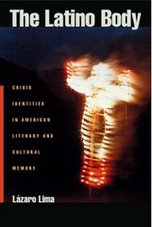If a Latina or Latino dies at war and there is no one around to witness it or to care, does it matter? Yes, and resoundingly so, as Latino cultural industries and agents have been proclaiming from the U.S. Mexican War (1846-48) to the present spoken word revolution. So what's taken America's professed televisual conscience so long to catch on?
From El Diario, "Latinos as sidebars in U.S. history"
EDITORIAL - 04/13/2007
Latinos welcomed the news that PBS and the Ken Burns team will include Hispanics in a documentary series on World War II. But what the quality of that inclusion will be is now the question.
On February 28, this paper ran a story and editorial about how a 14-hour documentary on the American experience of World War II failed to include Latinos.
Reflecting the Hispanic perspective is an issue of respect, not just for Latinos but for history. Accurate and complex portrayals help move audiences beyond narrow perceptions of U.S. history.
The Burns project also has implications for the fierce debate on U.S. involvement in Iraq. As El Diario regularly reports, Latino soldiers are among the mounting death count in Iraq. The voices of Latino veterans and families in the documentary would help offer a fuller version of the U.S. experience of war.
PBS has annnounced that additional content on Latinos will be incorporated and a Latino
producer will be hired. This is a step that resulted from pressure by the Defend the Honor Campaign, a Latino coalition.
What bothers us, however, is that PBS has clearly stated that the existing content will not be changed. This implies that Latino stories will be added as a footnote instead of woven into the body of the series, relegated to an “extra feature” option on a DVD menu.
Depicting Latinos as sidebars to U.S. history is unacceptable. We expect nothing less than substantive representation of Latinos in the Burns project. And as Burns has a long contract with PBS, we hope that the lesson has been learned. This episode should also be a turning point in how public television, long supported by Latino tax dollars, distributes its resources for projects.
Sunday, April 15, 2007
Subscribe to:
Comments (Atom)

